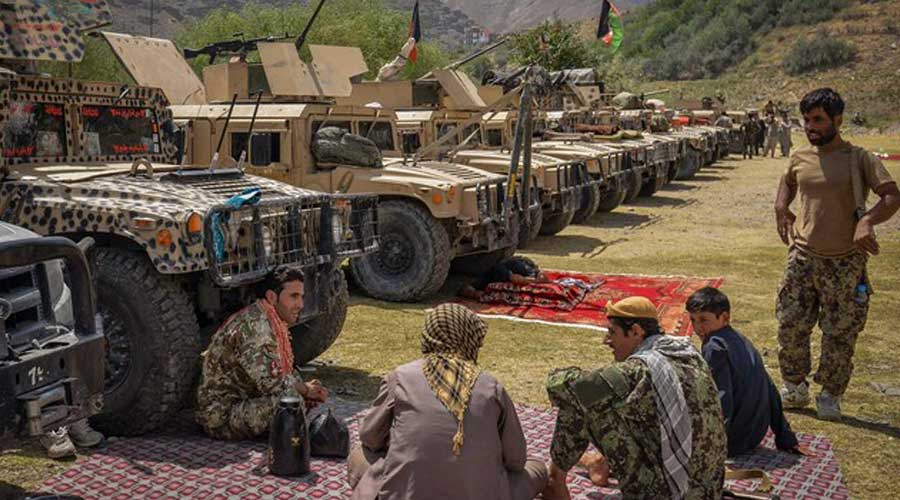Emergency food distributed by the UN to hundreds of thousands of hungry Afghans will be exhausted by September 30, the organisation’s top humanitarian official in Afghanistan said on Wednesday.
The assertion by the official, Dr Ramiz Alakbarov, amounted to a warning that starvation could soon compound the humanitarian crisis convulsing Afghanistan under its newly resurgent Taliban leadership, which seized power two weeks ago as the US-backed government collapsed after 20 years of war.
Speaking to reporters by video-conference from Kabul, Dr Alakbarov also said that a third of the country’s population of roughly 38 million is facing acute levels of food insecurity, which means they often don’t know when they will be eating next.
A prolonged drought, coupled with the upheavals of the war, he said, mean that “food insecurity is very apparent throughout the country”.
Afghanistan heavily relies on foreign aid, much of it funneled through the UN. The US and other Nato countries have also been major suppliers over the past two decades.
The country has been largely shut off from the rest of the world since the last American forces left a few days ago, signalling total Taliban control.
ServiceThe militant movement commands virtually all border crossings and Kabul’s airport, a major entry point to the landlocked country. The airport was damaged and rendered temporarily inoperative after the emergency American-led evacuation ended on Monday.
The United Nations, which runs an extensive humanitarian aid operation in Afghanistan, has maintained a presence with a mostly Afghan staff but has been unable to replenish most supplies since the Taliban takeover.
Dr. Alakbarov said the U.N.’s storehouses of food in Afghanistan had been drastically depleted. He warned that if current trends prevail “we will be out of stocks” by month’s end. He also said only $400 million of the $1.3 billion sought from international donors by the United Nations for Afghanistan relief this year had been received.
Asked whether the Taliban leaders have honored their pledge to respect the rights of women, who were severely repressed under the 1990s Taliban regime’s strict interpretation of Islamic law, Dr. Alakbarov suggested a mixed picture. In some provinces, he said, women hadcontinued to travel, work and go to school without a problem. But in others they had been ordered to stay home and had been harassed if unaccompanied by male escorts.
“It differs from one province to another, not consistent,” he said. “The Taliban is a very decentralized movement.”
New York Times News Service

